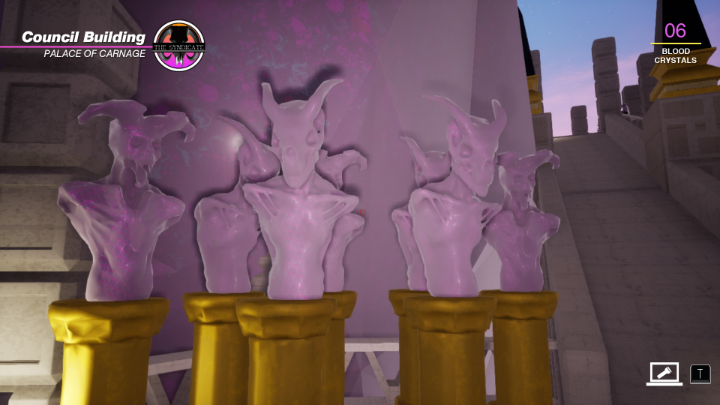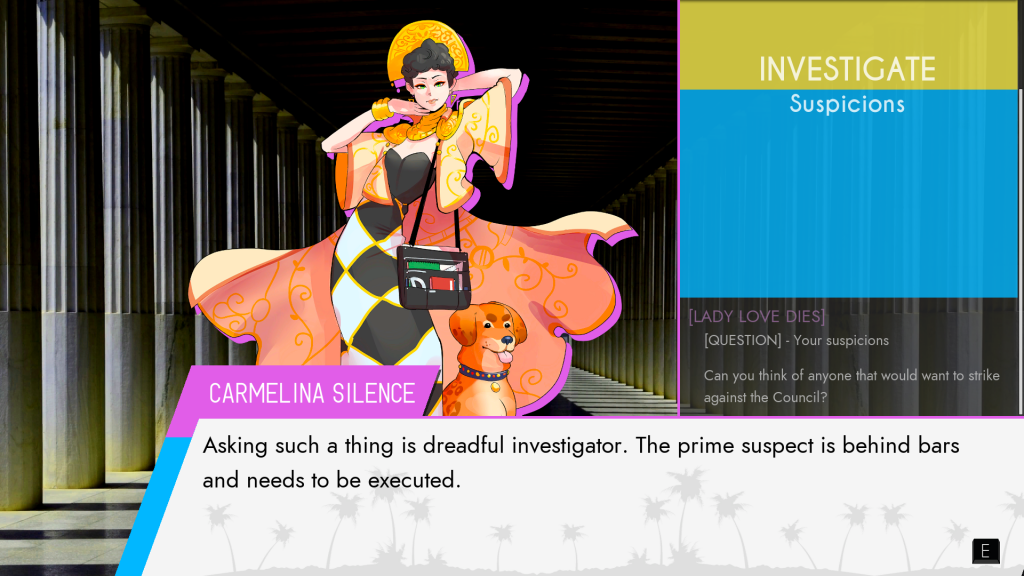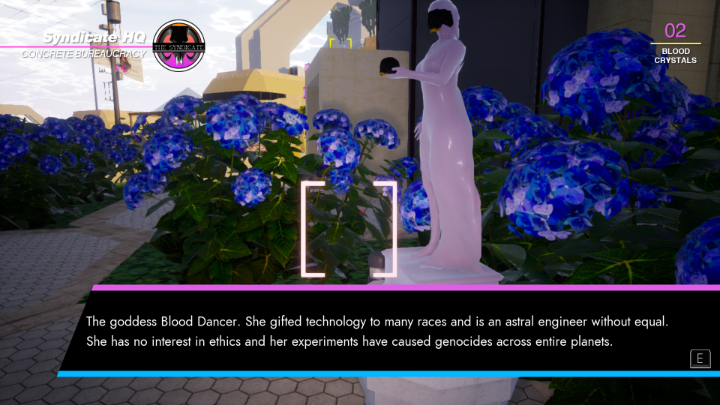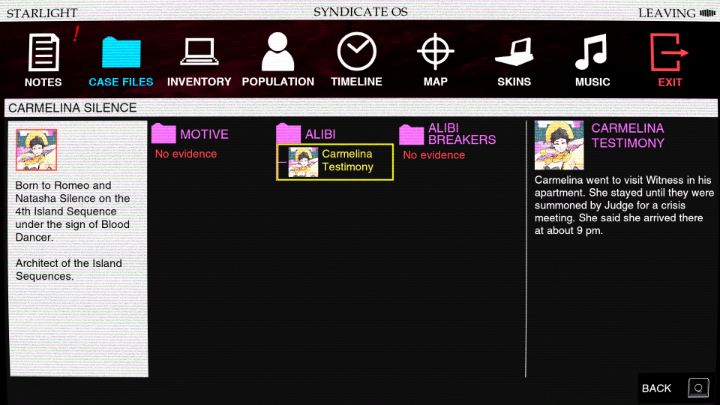
It’s easy to think of Danganronpa after watching the trailer for Paradise Killer. Even if you’ve never walked through the gates of Hope’s Peak Academy, it’s hard not to spot some similarities. Both games pair 2D sprites with 3D backgrounds. They both combine bright colors with gruesome content. They both involve murder mysteries that conclude with a courtroom trial.
But as I spend more time with Paradise Killer, the two properties feel less and less alike. Danganronpa works hard to make you feel attached to its cast of characters, knowing they could be murdered — or executed — at any time. Danganronpa asks you to solve a series of iterative mysteries, working your way up to the final trial, where everything is laid bare.

Paradise Killer only asks you to solve one mystery, and there are no rules about how the case is solved. Once you make it through the game’s opening, you’re given free rein to explore the island, gather evidence, and prepare for your day in court. You can start the trial at any time, and you can come up with your own conclusions. As long as you have the evidence to support your claims, you can accuse anyone of being the culprit.

Paradise Killer has a large cast of colorful characters, but so far, I haven’t felt attached to anyone in particular. While you have the option of hanging out with the people you meet, your focus is always on the mystery you’re trying to solve. Most of your conversations will be about interrogating potential suspects, questioning alibis, and collecting evidence to build a stronger case.
It doesn’t help that Paradise Killer has some serious grammar issues. The dialogue is frequently missing commas or other essential punctuation. Some sentences are extremely difficult to parse. Those issues and the game’s open-ended nature have made it hard for me to feel invested in its characters or stories.

Those issues might sound glaring, but they’ve been less of a problem than you’d think. While I’d love snappier dialogue and a stronger script, my real motivation for playing Paradise Killer has been exploring its colorful world. Some of my favorite moments in the game have involved stumbling onto strange locations or reading the descriptions for the items that I interact with. The game occasionally dumps too much information on you at once, but as a whole, the world building has been pretty solid.

The investigative process has also been a delight. There’s a lot of walking around and clicking on any object you can interact with, but there are also moments that briefly make me feel like a real detective. I promptly exhausted my entire supply of blood crystals (the game’s currency) when I realized I could exchange them for information about the case. Your computer system, Starlight, collects all the details you gather, allowing you to pour over the evidence and develop new theories about the case.

If you go into Paradise Killer expecting a Danganronpa clone, you’re probably going to be disappointed. Paradise Killer‘s open-ended structure is nothing like the games in the Danganronpa series, and it doesn’t have the same focus on stories or characters. In fact, if your playthroughs are anything like mine, there will be long stretches of time when you barely read any text at all.
But if you’re looking for a mystery game that feels totally unique, Paradise Killer might be up your alley. This title doesn’t guide you down the rails of a tightly-written mystery story. Instead, it drops you into a bizarre world and lets you explore it at your own pace. You can spend hours gathering every last piece of evidence, or start the trial without investigating anything at all.
Paradise Killer is a nonlinear, gameplay-focused title that feels completely different from Danganronpa, Ace Attorney, and every other mystery game I’ve played. And its uniqueness is its greatest asset.